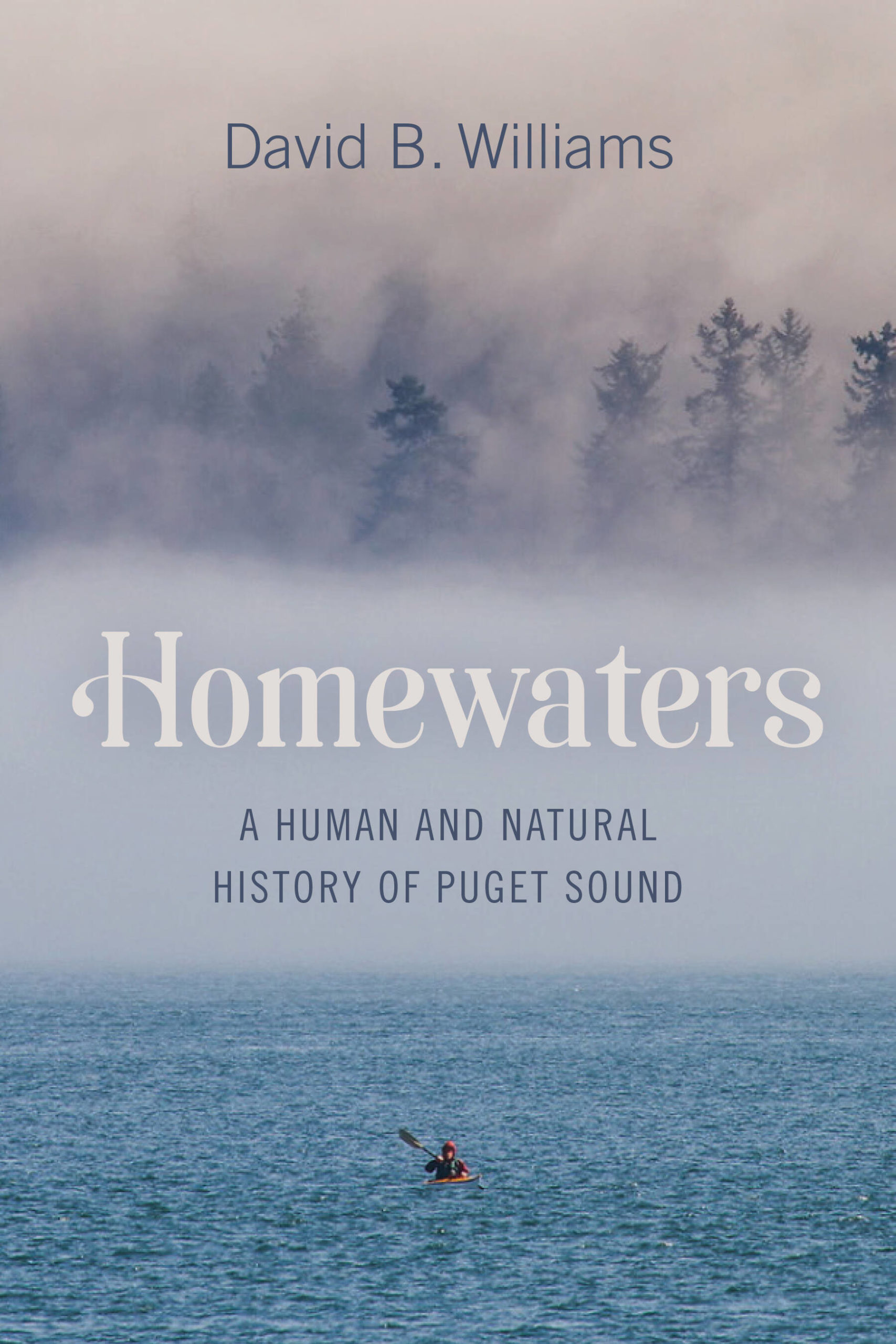There are plenty of us who care deeply about the environment. We recycle religiously and try to reduce our carbon footprint. We pride ourselves in bringing our own shopping bags and work to reduce the proliferation of plastic.
As devastating forest fires, deadly floods, and out-of-control hurricane winds offer evidence of a dramatically changing environment we may often feel that whatever we do isn’t enough to stem the destructive trend.
Author David B. Williams wants us to take heart in the knowledge that whatever we do to help save the planet, does count.
“However small or insignificant we think our actions are, anything we do to defray what feels inevitable is vitally important,” he said recently. “Each of us doing what we can make us more inclined to be supportive of larger and more significant actions.”
Williams’ newest book, “Homewaters: A Human and Natural History of Puget Sound,” looks back on 10,000 years of Sound history through the stories of the area’s earliest inhabitants and the subsequent changes to both the land and the surrounding waters, including often overlooked marine life.
In addition to orca and salmon, Williams directs our interest to “lesser-known, eco-critical species such as rockfish, herring, kelp, Olympic oyster and geoducks” with a goal of engaging the reader “to understand how critical timing is and how, by working together, we can make our environment more habitable for everyone.”
His interest in the natural world has been a long time coming. A geology major, Williams landed a job with the Canyonlands Field Institute in Moab, Utah, where he coordinated natural history programs. He followed that with a stint as an interpretive park ranger at Arches National Park. His educational experiences propelled him toward environmental messaging because he “saw writing as a better method of sharing my passion for the natural world.”
A child of the Pacific Northwest, Williams grew up immersed in the world of nature but it was his trip to Boston to follow his wife’s desire for a graduate degree that redirected his focus. Where he had previously “traipsed through sandstone canyons and hiked desolate trails,” in Boston he found himself surrounded by canyons of tall buildings and busy streets.”
Faced with the dramatic change in landscape, Williams began seeing the environment as a series of stories that, when told, could create a historical awareness that provides a natural and cultural history of the world around us — an awareness that has the potential to provide a deeper connection to nature and foster a commitment to its protection.
While he doesn’t sugarcoat the seriousness of the environmental challenges we face, Williams maintains an optimism that is as refreshing as it is encouraging.
“Imagine how different the environment would be if we had done nothing to abate the destruction. We have made great strides,” he adds, “and we can take some small pride in that.
“Change doesn’t happen overnight, and it doesn’t happen because of one action. Change is deliberate, and deliberate actions by committed people can bring about great change.
Williams is counting on deliberate action and believes “the more people know and understand about the region we call home, the more significant our actions will become.” He hopes his new book will “forge a more intimate relationship between the reader and the beautiful landscape we’re all lucky enough to call home.”
Northwest writer Iris Graville will interview Williams about his new book, “Homewaters: A Human and Natural History of Puget Sound” Sunday, Sept. 19 at 3 p.m. at the outdoor pavilion of the Lopez Center for Community and the Arts. Visit lopezmuseum.org/events/ for more information.



